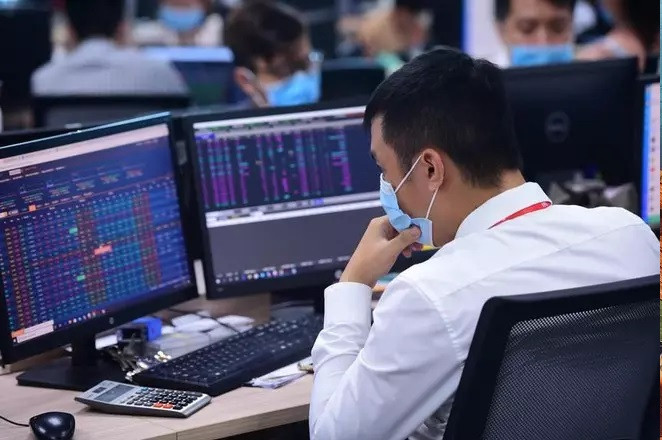
Vietnam's stock market is in an unpredictable period. After falling for many weeks in a row since the beginning of April, the market witnessed recovering sessions and the VN-Index returned to the threshold of over 1,200 points.
However, the index has been at the bottom for more than a year - a bad signal that liquidity is at a low level.
The VN-Index returned to 1,524 points on April 4 and then quickly dropped to 1,171.95 points on May 16. In the nearly 6 weeks, VN-Index lost more than 250 points, equivalent to a decrease of nearly 23%.
Usually with a drop above 20%, the market is considered to have entered a bear market.
Market capitalization down US$70 billion
The stock market has plummeted since the beginning of April 2022 and has fallen by more than 22% in total. The market capitalization also dropped sharply, from the peak of about $342 billion at the end of March to $270 billion on May 16, 2022. The market lost about $70 billion during this time.
Liquidity on the stock market in May fell sharply, to only VND10-20 trillion per session. In the last few sessions, the liquidity was only VND11-15 trillion. This is the lowest level since late 2020. In the past two months, individual investors have withdrawn trillions of VND from the stock market.
However, the number of new securities accounts in April remained very high. At present, a total of more than 5.2 million accounts have been opened, or 5% of the population.
Data from the Vietnam Securities Depository (VSD) shows that, in April, domestic investors opened 231,960 new securities accounts, including 231,782 accounts of individual investors and 178 accounts of institutional investors.
Compared to the previous record month, the number of new accounts decreased significantly, but remained at a very high level, ranking second in the two-decade history of Vietnam's stock market.
In March, according to VSD, there were 271,619 new accounts, thereby helping Vietnam to reach nearly 5 million securities accounts, equivalent to 5% of the population, three years earlier than the target set by the Vietnamese Government. With the recent rapid growth, the percentage of people participating in the stock market by 2030 will reach 10% easily.
According to ACBS, Vietnamese stocks are having the cheapest valuation since April 2020 and therefore opportunities exist for investors in the long term. According to this securities company, the long-term outlook of the market is still positive although in the short term there may continue to be fluctuations.
ACBS believes that the Vietnamese stock market has experienced a correction in recent weeks due to many domestic and external events. Concerns about the prospects for a post-Covid global economic recovery are growing due to worries about inflation and how central banks are acting to tame inflation, and prolongation of the war in Ukraine as well as the zero-COVID policy in China leading to lockdowns in key cities are increasing strain on global supply chains.
Regarding the actions of Vietnamese authorities to deal with violations on the stock market that affect market sentiment in the short term, the resulting transparency and fairness of the playing field for all investors will be good for the long-term development of the financial market.
In the long term, Vietnam's economy, according to the IMF and ADB, is still a bright spot in Asia.
M. Ha